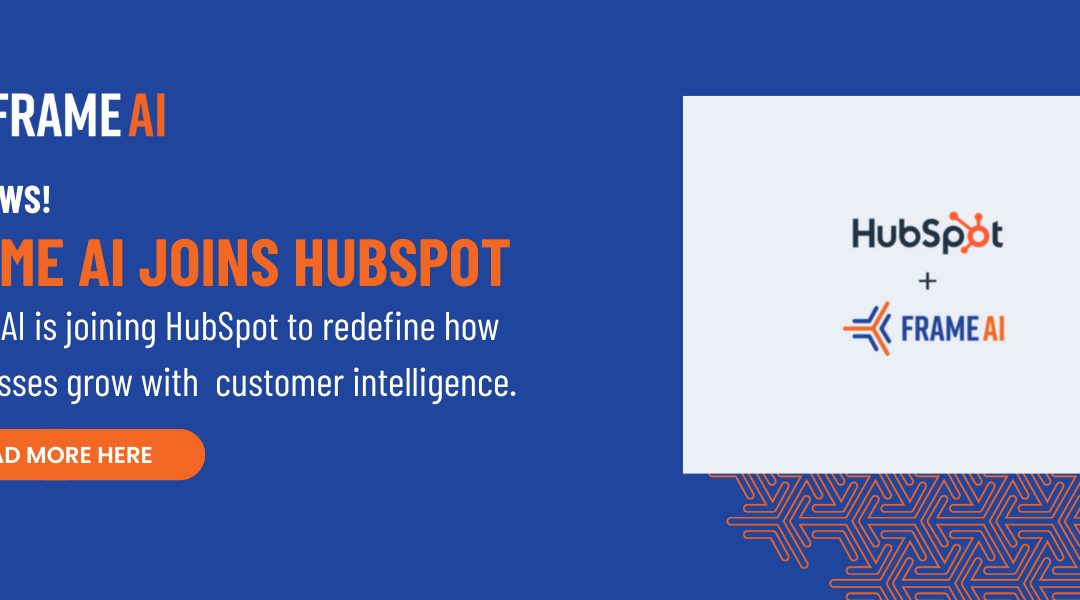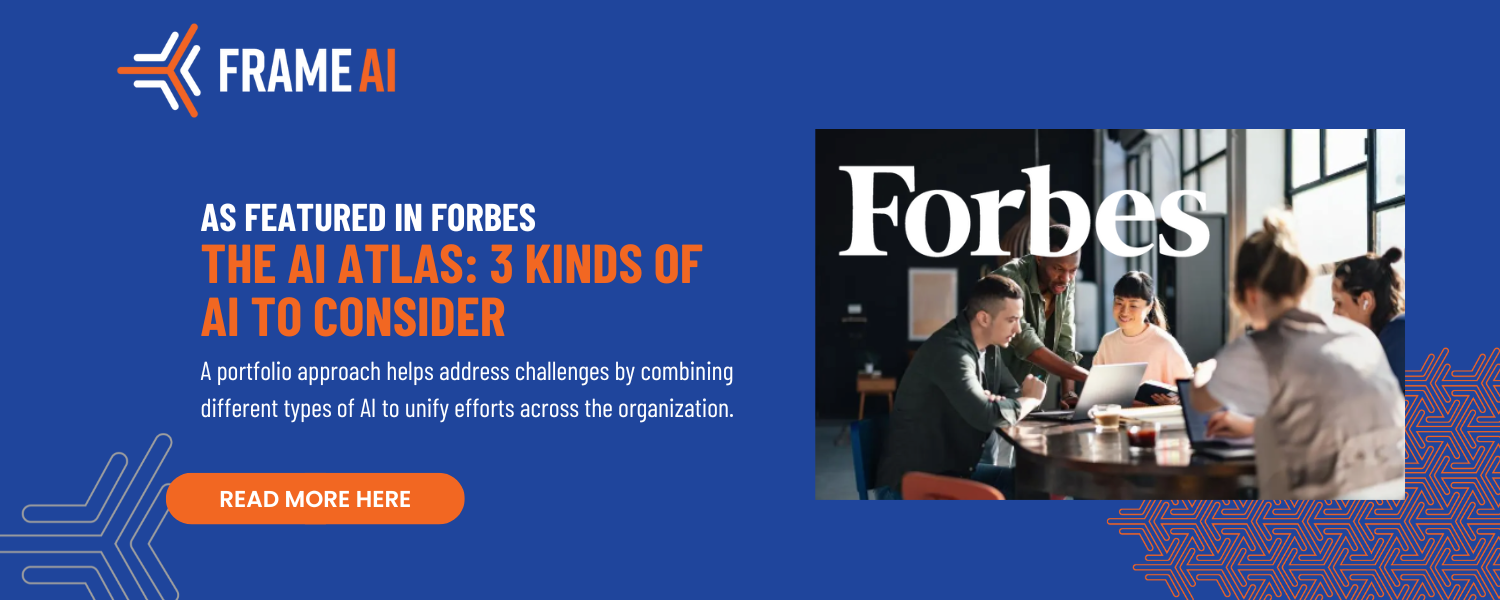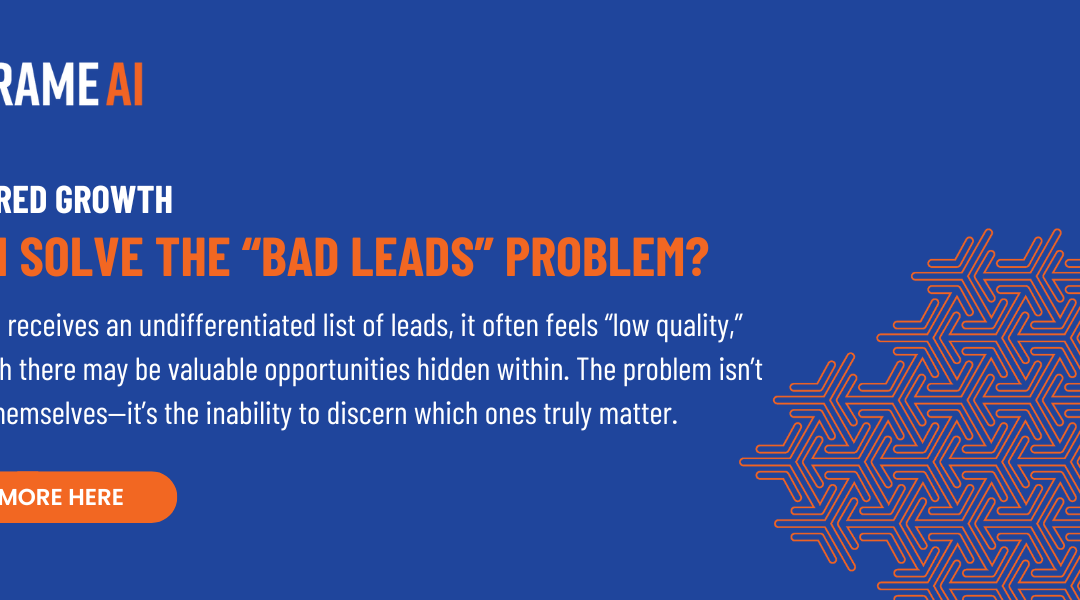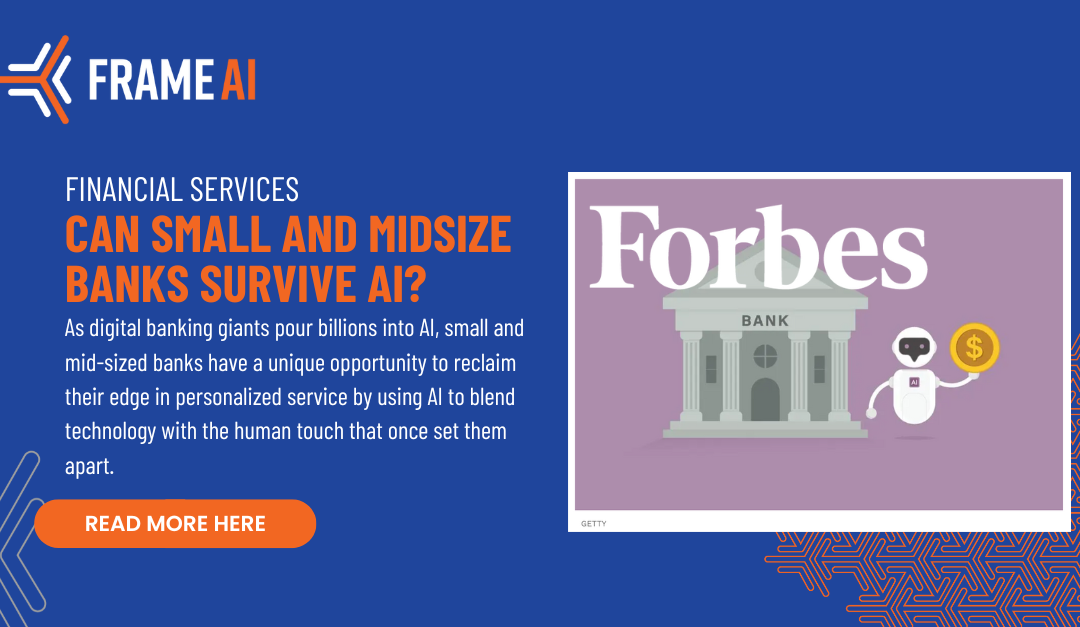
Big News: Frame AI Joins Hubspot
By George Davis, CEO & Founder
BLOG


By George Davis, CEO & Founder

Traditional lead-scoring methods rely on surface-level data, creating a disconnect between sales and marketing.
When sales receives an undifferentiated list of leads, it often feels “low quality,” even though there may be valuable opportunities hidden within. The problem isn’t the leads themselves—it’s the inability to discern which ones truly matter.

In today’s consumer banking landscape, small- and mid-sized banks, once valued for local relationships, are facing new challenges as customers prioritize digital convenience. With major banks investing billions in AI to enhance personalization and efficiency, smaller institutions are feeling the pressure to keep up. AI presents an opportunity for these banks to restore and amplify their hallmark of personalized service. By outsourcing AI capabilities through cloud banking providers, these banks can improve customer experience, automate routine inquiries, and focus resources on meaningful customer connections. This strategic blend of technology and human touch can help smaller banks regain a competitive edge in a crowded market.
Case studies, interviews, and tips and tricks learned from harnessing AI for more strategic
implementation of your data.